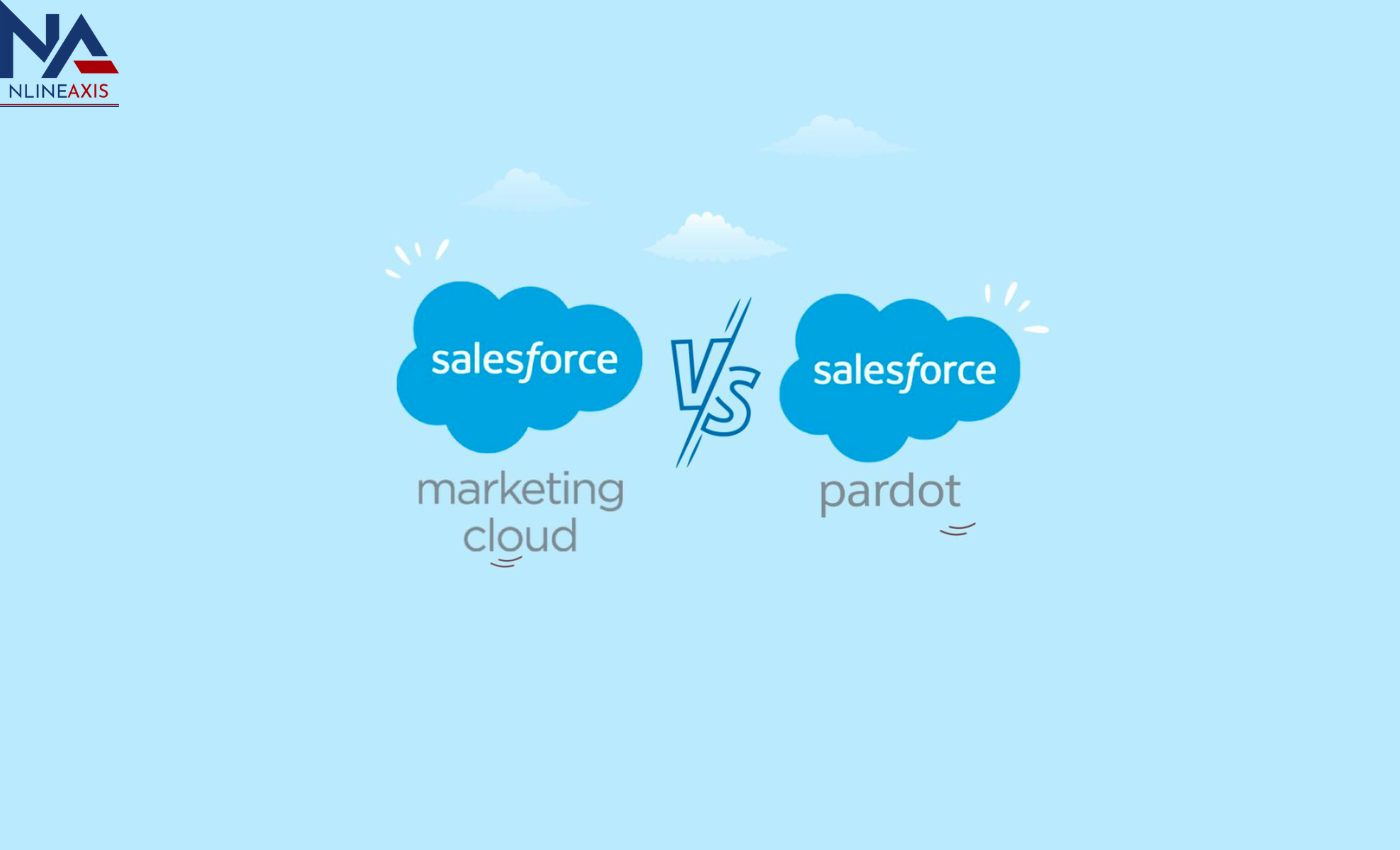Pardot vs Marketing Cloud: Key Difference
When exploring the realm of marketing automation, Pardot and Salesforce Marketing Cloud appear as prominent players. Despite their common background, a superficial assessment might suggest overlapping functionalities. The assumption that one is an enterprise-grade version while the other caters to smaller entities is not unusual. Nevertheless, the reality is that these are different software solutions personalized for different brand requirements and objectives.
This article endeavours to delve into the common questions that rise when considering the Pardot vs Marketing Cloud decision. Queries such as whether Pardot is an element of Marketing Cloud, the nature of Pardot in terms of B2C or B2B focus, and defining which platform aligns better with exact business requirements will be explored. When assessing the feature sets of Pardot and Salesforce Marketing Cloud Engagement, you’ll observe substantial similarities, including social media marketing, lead nurture journey mapping, email automation, and CRM integration. This seeming overlap might prompt the question, “Are Pardot and Salesforce Marketing Cloud Engagement fundamentally identical?”
Hence, considering the distinctions between Pardot vs Marketing Cloud is vital for organisations to make informed decisions about their marketing tactics. In this article, we delve into the key differences that matter when comparing Marketing Cloud vs Pardot.
Marketing Cloud vs Pardot: A Comprehensive Comparison
Before diving into the specific differences between these two software solutions, it’s crucial to understand their essential functionalities and target audiences. Both Pardot and Marketing Cloud Engagement serve as automation platforms, offering digital insights, combining information, and enabling integration with the Salesforce CRM. The commonalities extend to several features, producing a basis for more exploration into what sets them apart.
Salesforce Marketing Cloud
Salesforce Marketing Cloud is a platform created to simplify the creation and management of personalized client experiences. It allows brands to construct client journeys that extend to various platforms, allowing customers to flawlessly interact across social media, the company’s website, paid advertising, and other touchpoints. The aim is to guarantee that, from the client’s perspective, the journey across these platforms remains smooth and organized in relation to the product.
Salesforce Marketing Cloud equips users with tools to streamline the setup of such customer journeys, aiming to boost the experience for possible leads as they discover the product and progress into prospects who ultimately make a purchase. Furthermore, it streamlines the process for marketing staff in orchestrating and improving these customer interactions.
Pardot
Pardot shares comparable objectives but puts a certain emphasis on B2B marketing. Its main goal is to augment collaboration between marketing and sales teams. Pardot offers marketing automation capabilities, allowing users to send targeted emails based on customizable parameters, such as specific interactions. The platform enables the assessment and ranking of prospects, encouraging a data-driven method to messaging.
Pardot includes a wide-ranging set of tools to help with these aims, including advanced features such as Artificial Intelligence for assessing and understanding lead behaviour, prioritization them, and functionalities for monitoring both ROI and competitor activities.
Salesforce Pardot vs Marketing Cloud
When comparing Salesforce Pardot vs Marketing Cloud, it’s important to reflect on the exact needs of your organisation. Pardot is compatible for businesses with complex B2B sales processes, providing facilities such as prospect tracking, lead scoring, and smooth integration with Salesforce Sales Cloud. It allows marketing and sales teams to function cohesively, driving productivity and refining conversion rates.
Salesforce Marketing Cloud, on the other hand, offers a more wide-ranging set of marketing tools fit for organisations with various marketing requirements. From tailored email campaigns and social media integration to analytics and automation, Salesforce Marketing Cloud lets brands produce and accomplish multi-channel marketing campaigns at scale.
Price
When comparing Salesforce Marketing cloud vs Pardot, a significant factor to contemplate is the pricing. If you discover that both platforms could suit your organisation’s requirements, the decision may come down to budget restraints, particularly considering that Marketing Cloud Engagement usually comes with a higher total cost. The payment structure for Marketing Cloud Engagement is dependent on the required edition, along with an added cost for the modules you want. This can be compared to subscriptions for every module that can be added or detached as necessary.
On the contrary, Pardot follows a pricing model based on editions, with the choice to incorporate certain add-ons at an additional cost for the lower tiers. Both platforms have usage restrictions that can also influence the total cost.
Leveraging a Salesforce Consulting Company
Executing Salesforce solutions like Pardot or Marketing Cloud can be a multifaceted procedure, demanding proficiency in Salesforce architecture and best practices. A Salesforce Consulting Company can play an essential role in guiding organisations through the customization, application, and optimization of these marketing automation platforms. These advisors possess the knowledge and understanding to bring into line the Salesforce solutions with brand aims, guaranteeing a smooth and effective implementation.
NLINEAXIS IT Solutions Private Limited understands that in the Pardot vs Marketing Cloud discussion, businesses search for a tailored approach aligned with their exact objectives. We take pride in our expertise in integrating Salesforce solutions, including Pardot and Marketing Cloud, with Salesforce Sales Cloud. Our expertise in Salesforce solutions, joined with a deep understanding of marketing automation, allows us to guide businesses through the complicated decision-making process.
Conclusion
In the Pardot vs Marketing Cloud argument, there is no one-size-fits-all solution. The choice between these Salesforce marketing automation platforms hinges on the exclusive requirements and goals of your organisation. Pardot outshines in B2B lead management, while Marketing Cloud provides a wider range of marketing tools appropriate for both B2B and B2C brands. To make the most well-versed decision, brands can leverage the skill of a Salesforce Consulting Company to confirm seamless integration, effective application, and best results from their selected platform.
Specializing in Salesforce consulting and implementation, NLINEAXIS IT Solutions Private Limited guarantees that brands harness the full potential of Salesforce products like Pardot and Marketing Cloud, producing seamless interactions between marketing and sales teams. As businesses navigate the details of digital marketing, the choice between Pardot and Marketing Cloud becomes essential, and we emerge as the go-to partner for making informed decisions.


